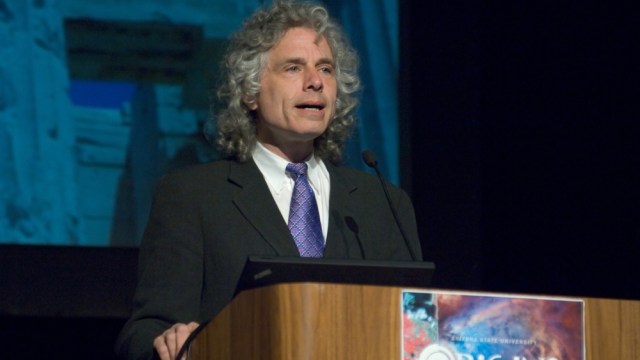If Great Minds Really Did Think Alike, We’d Be Living in a Dystopia

“Great minds think alike.”
No they don’t, and it would be a horrible state of affairs if they did. In fact, it is the dissimilarity between human minds that is the source of our progress and success as a species.
Now, this phrase is usually employed jocularly, as in the case of two friends having the same idea at the same time. But its prevalence means that it rings true for some, and that is a problem.
The notable feature of great minds—what, in fact, makes them great—is that they do not think alike to any other minds, great or otherwise. It is the ability to consider independently and originally that makes thinkers powerful and important.
In addition to its jocular use, I have also heard the phrase being seriously defended on the evidence of the history of great ideas being thought up at once and by different people.
Thomas Paine: “I do not believe that any two men, on what are called doctrinal points, think alike who think at all. It is only those who have not thought that appear to agree.”
Consider, for example, Leibniz’s and Newton’s seemingly simultaneous invention of calculus. It does seem like a case of great minds thinking alike. But, other factors precipitated the need for calculus at that time (and their respective finished products weren’t all that similar anyway). In other words, the alike thought was caused by something other than respectively great minds.
It is much easier, day to day, to agree than to disagree. When minds seem to think alike, it is usually a result of intellectual complacency, and of a prioritizing of harmony over rightness, not a result of genius. That is the explanation that, to me anyway, makes this platitude, used in jest or not, so wrongfully attractive; “Wouldn’t it be nice,” users of the phrase tacitly and hopefully ask, “if exemplary human minds reached the same conclusions?” “Wouldn’t that mean that the work of collaboration and coexistence, the very (hard) work for which intelligence exists, were done for us?”
I say no.
Consider this refutation of “great minds think alike” by none other than philosopher, founding father, and great mind Thomas Paine: “I do not believe that any two men, on what are called doctrinal points, think alike who think at all. It is only those who have not thought that appear to agree.”
Nobel laureate Daniel Kahneman says that the ego-clashes we tend to excuse among high-achievers can be counterproductive when it comes to collaborating.
—
Born and raised in New York City, Nick studies philosophy at Trinity College Dublin, specializing in Mathematical Logic and in the crossroads of free will, determinism, and personhood. His particular interests are: Logic, Philosophy, Motorsports, Kurt Vonnegut, Bertrand Russell, 20th Century American Literature, The Automotive Industry, and Debate.





